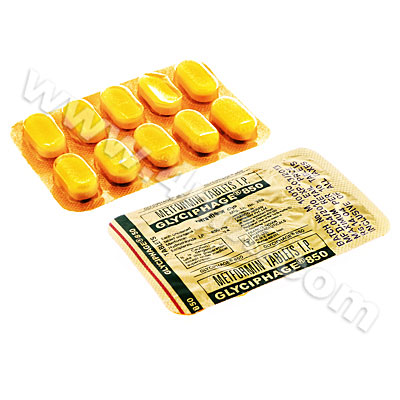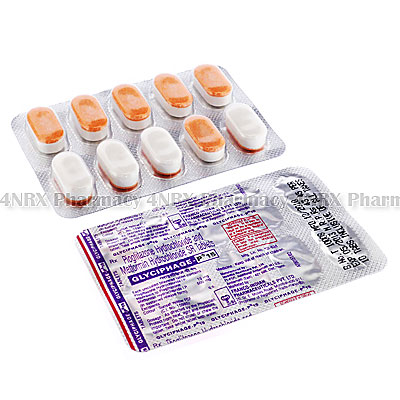 |
Home  Diabetes Diabetes  Glyciphage (Metformin Hydrochloride) Glyciphage (Metformin Hydrochloride) |
|
|||||||||
|
Glyciphage (Metformin Hydrochloride)
What is Glyciphage (Metformin Hydrochloride) used for? Glyciphage (Metformin Hydrochloride) is given to patients to treat type 2 diabetes. It may also be used with other drugs. This medication helps to control the quantity of glucose in the blood by decreasing the production of glucose by the liver, and also by reducing the absorption of glucose from food. It can also help to increase the bodily response to insulin. How should I use Glyciphage (Metformin Hydrochloride)? Patients taking Glyciphage (Metformin Hydrochloride) may be directed to take 1 to 3 tablets per day. It is important however, for patients to consult their physician before taking this medication, in order for the correct dosage to be prescribed. Your physician may initially prescribe a low dosage, which may then be gradually increased. Always follow the instructions of your physician. What are the side effects of Glyciphage (Metformin Hydrochloride)? Some side effects which may be caused by Glyciphage (Metformin Hydrochloride) include:
This drug may also cause other rare but serious side effects. Consult your physician immediately if you notice loss of breath, an increase in weight or signs of fever. This drug may cause a potentially life threatening condition, known as lactic acidosis. Patients should seek immediate emergency care if they notice pain in the muscles, numb limbs, breathlessness, vertigo and a slow heartbeat. Please Note Strictly follow all instructions provided to you by your physician or pharmacist while using Glyciphage (Metformin Hydrochloride).Optimum and safe dosage can differ based on the patient and the condition being treated. As this medication may be unsafe for certain patients, it is essential you always inform your physician if you are pregnant or breastfeeding, as well as if you have any allergies, other illnesses, or ongoing health conditions, and if you are taking any other form of medication, supplements, or herbal products. Immediately seek emergency medical care if you have any allergic or hypersensitive reaction. Common signs of a reaction include hives, swelling, skin rashes, chest pains, as well as trouble breathing or swallowing. 


|
|||||||||||||||||